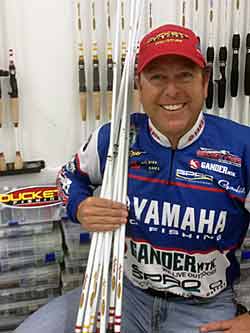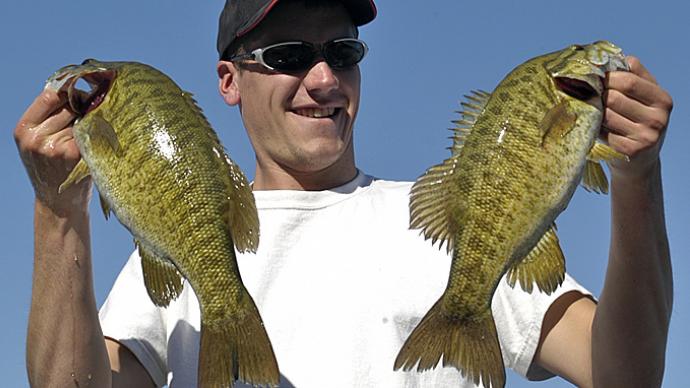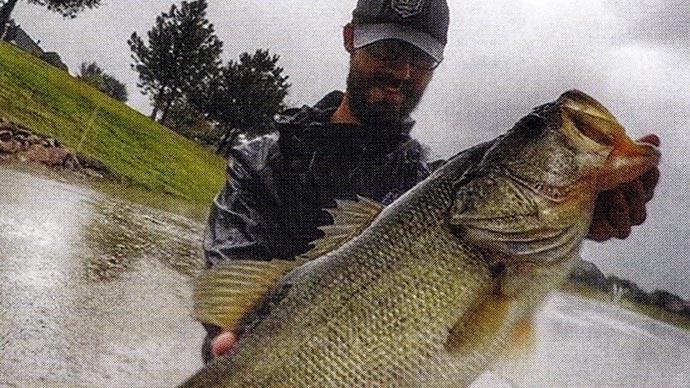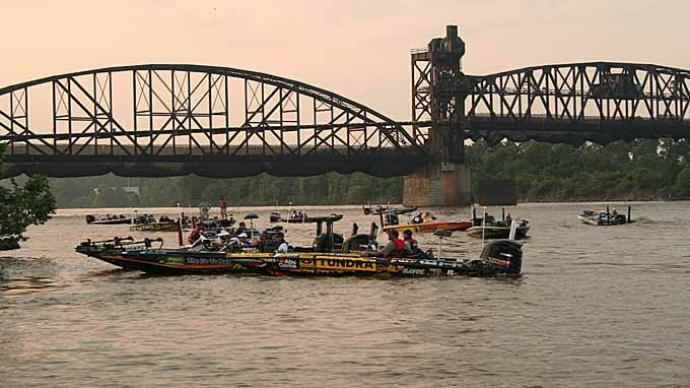
Do people wonder how anglers make it on the professional circuit? To do it, you have to love it. There are so many up days and down days that, unless it's your passion, it can bring you down.
This past year has been one of my most successful. Last year also had its downside. I made an error on the Red River. Luckily, I have learned from that mistake. With each mistake, there is an opportunity to learn.
I want to touch on what it takes to be a professional angler and how beginning tournament anglers or weekend anglers can get more pleasure from the sport.
There is a lot of responsibility that goes along with fishing professionally. There are responsibilities to the sport, the sponsors, the family, and you.
Let's start with sponsors. Skeeter Boats and Yamaha Motors are my boat and motor sponsors. I feel blessed that they build exceptional products that I can count on day in and day out. For that, I always keep in mind that I am representing their companies. It is essential to keep a proper image. When I return to the dock after a hard day of fishing, I try to look my best to represent the companies that support me in the best light. It wouldn't look right for me to return to a dock filled with reporters with my shirt hanging out, my face unshaven, or my hair a mess. You never know who you're going to meet on the dock.
When I set the record for the heaviest weight in a tournament, I knew many people would want to talk with me. Izorline, my line sponsor, provides me with some of the finest quality lines available on the market. At the time, many people hadn't heard of them. While their product speaks for itself, I had to make sure they were given their proper respect. I even talked with Bass West when they accidentally put the name of another line company in the story. I knew that Izorline helped make that win possible, and the world needed to know it.
Responsibilities to the sport are just as important. We want and need the sport to continue growing. Learning how to portray yourself in public, whether it's on the winners' stand or the Bassmaster's television shows, you can't look like "some bubba." You have to be sharp.
There is also the responsibility to your family and you. Some people in the West frowned when I bought a home in Texas. They felt I was deserting the West. That is not true. I still have my home in Lake Havasu, Arizona. While my fellow anglers have seen me on television and in magazines with the accolades that come with success, there are things they haven't seen. They haven't seen the times I was pumped up on Mountain Dew and M&M's, driving across New Mexico at two in the morning so I could get home to see my wife and children.
I bought a home in Texas to maintain my responsibilities as a husband and father. I can spend as many as 30 more days a year with my family. And my family gives me the desire to compete.
When it comes to fishing, the best thing I can tell you is to be different. All of the professional anglers on the tour are highly competent. That's why many of them go to the same spots on a lake. They have all figured out the same thing or pattern because they are that good.
To stand out, you have to try to do something very different. Look for the areas or patterns that others haven't discovered. The best way to do that is to avoid all the dock talk. I try not to listen to what everyone else is saying and go out there and find my method and pattern. It's far too easy to get caught up in what the locals say, or the other anglers talk about. Make your game plan and stick to it.
The other factor that all beginning tournament anglers need to learn is how to be versatile. You can't allow yourself to become proficient in only one or two techniques. Sure, there will be times when you will shine because the stars lined up just right, but to be consistent, you need to learn about every new technique and practice the older ones.
I love to throw a frog in the weeds, but there are times when I know I have to dropshot deep water. All beginning tournament and weekend anglers must spend as much time as possible with a technique. Don't give up on it just because you don't catch fish right off the bat. Stick with it until you have mastered the technique and have a lot of confidence in it. Then try something else and stick with that. Over time, you will become comfortable with various techniques you can apply to virtually any situation.
For beginning anglers, don't cut corners. Get good equipment. In the long run, you will enjoy the sport much more. Hire an excellent guide to show you how to present a lure and why. While a good guide can cost a few hundred dollars, it will be well spent in the long run and save you from wasting precious time.
Overall, the best thing for any angler is to spend time on the water. As much time as possible. Try fishing in all conditions and learn something every time you hit the water. Pay close attention to details. Notice what the conditions are and how the fish adjust. It helps to keep a log of your activities, both the successes and the failures.
Reprinted with permission from Bass West Magazine



